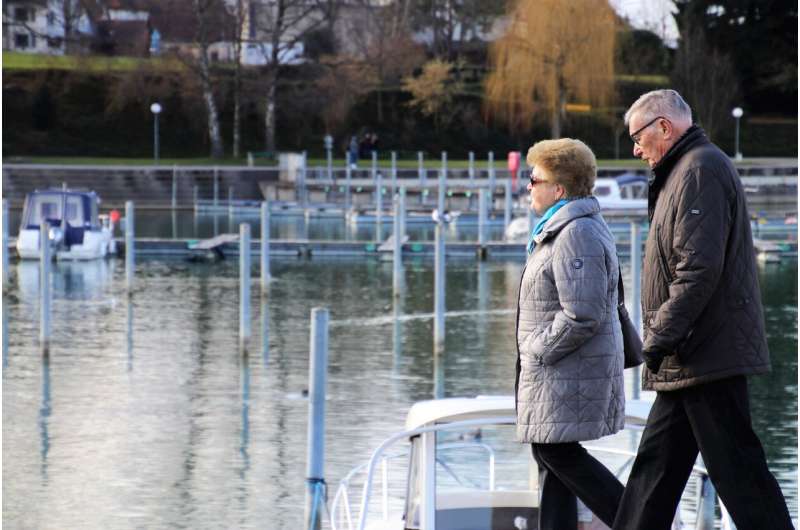Older people are worse at learning to self-help, but just as good learning to help others

Older adults may be slower to learn actions and behaviors that benefit themselves, but new research shows they are just as capable as younger people of learning behaviors that benefit others.
Researchers at the Universities of Birmingham and Oxford found that youngsters, in contrast, tend to learn much faster when they are making choices that benefit themselves.
The study, published in Nature Communications, focused on reinforcement learning—a fundamental type of learning in which we make decisions based on the positive outcomes from earlier choices. It allows us to adapt our choices to our environment by learning the associations between choices and their outcomes.
Dr. Patricia Lockwood is senior author on the paper at the University of Birmingham's School of Psychology and Centre for Human Brain Health. She said: "Reinforcement learning is one of the key ways in which humans—as well as animals and even plants—learn from and adapt to their environment."
"We need to make decisions and learn all the time based on the positive or negative feedback we receive. This allows us to optimize our choices to choose the best course of action in the future from many possible alternatives. We find that older adults are worse than younger adults at learning from positive feedback on their own behavior. However, surprisingly, when making choices that give positive feedback—money—to another person, older adults are just as good as younger adults".
In the study, the team worked with 80 younger and 80 older participants. They were each asked to make a series of choices between two symbols on a computer screen. After each selection, they received feedback on whether they got reward points from the selection they had made.
On some rounds, points translated into increased money for the participant, in others they translated into money for someone else. In a third, control condition, participants could get points but these weren't worth money for anyone.
The results revealed that, on average, the older group learned to choose the most advantageous option more slowly than the younger group when their selections would only benefit themselves. However, when making choices on behalf of another person, older people learned equally as fast as the younger group. Across all age groups, the researchers found that learning was slowest when the points weren't worth anything.
Dr. Jo Cutler, lead author and also at the University of Birmingham, said: "We recognize that in general, cognitive processes and learning ability tend to get worse as people get older. So it's really interesting to see that when making choices that will benefit others, older adults' learning ability is preserved. By better understanding what motivates older people in this way, we can contribute to strategies that promote healthy aging."
The research program also yielded some surprising findings in terms of differences between the young and older adults in psychopathic traits, including lack of empathy and concern for others. The team found that these characteristics were lower in older adults, suggesting psychopathic traits are not fixed across a person's lifespan, but may tail off as we age. In older adults, their level of psychopathic traits explained differences in learning speed specifically when they were learning to benefit others.
More information: Cutler, J., Wittmann, M. K., Abdurahman, A., Hargitai, L., Drew, D., Husain, M. & Lockwood., P. L. (2021) (2021). Ageing is associated with disrupted reinforcement learning whilst learning to help others is preserved. Nature Communications, DOI: 10.1038/s41467-021-24576-w


















